Please Know What Celiac Disease Is Not
New blog post! When you have celiac disease, you spend a good amount of your time explaining what celiac disease is and what you can eat on a gluten free diet. But at least in my experience, friends and family usually have way more questions than can be answered in a few simple comments…and there are still far too many misconceptions about celiac disease and the gluten free diet floating around the world.
That’s why, when I saw this post at The Mighty, I knew I had to write a similar one about celiac disease. In particular, today’s post is all about what celiac disease is not…so that people can hopefully have a way better understanding of what celiac disease is and how it really affects our lives!
So without further adieu, celiac disease is not…
A fad diet.
For better and for worse, the gluten free diet has become way more popular in recent years. In fact, one 2016 study found that although the prevalence of celiac disease has remained constant over time, non-celiac gluten free dieters increased by 1.69% from 2013 to 2014. On the plus side, this has meant that there are more gluten free products than ever. However, many of these gluten free products and restaurant menus aren’t actually celiac-safe. And it can often make people assume that we’re eating gluten free to be “healthier” or lose weight…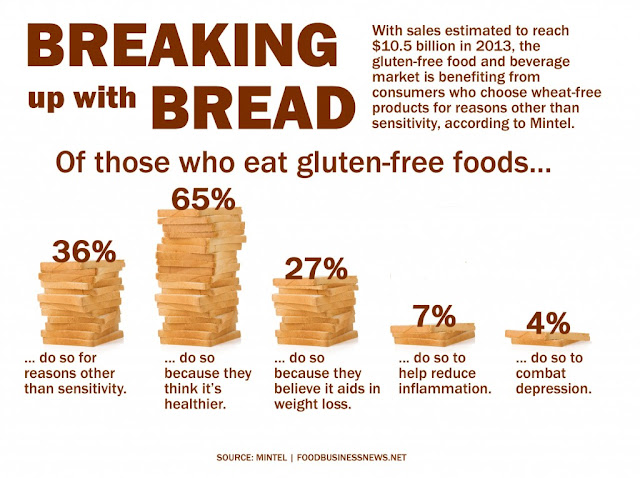 |
| Source |
But here’s the thang. When you have celiac disease, eating gluten free isn’t a choice. It’s the medicine required for us to stay alive.
An allergy.
The difference between celiac disease and a food allergy is another common misunderstanding in the gluten free community. But to break the differences down in relatively simple terms:- A food allergy occurs when a specific food causes an immune reaction in the body. This reaction can occur in minutes or hours, and can involve symptoms ranging from mild (like itching or nausea) to severe (like anaphylaxic shock).
- Meanwhile, celiac disease is a genetic autoimmune condition. You are born with the gene, but you don’t have celiac disease until it is “activated” by a trigger like stress, trauma, viral infections, etc. When someone with celiac disease ingests gluten, their own body attacks itself, causing severe damage to the small intestine. Besides triggering symptoms like nausea, diarrhea, weight loss, migraines, etc., eating gluten with celiac disease also causes long-term side effects like anemia, fertility problems in women, osteoporosis, cancer and more. And the only treatment is a gluten free diet.
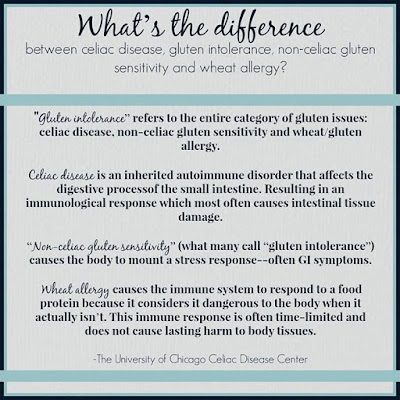 |
| Source |
Something we can grow out of.
Another main difference between food allergies and celiac disease I haven’t mentioned yet? Food allergies can be grown out of, especially if a child has them. On the other hand, celiac disease is a chronic condition. Once you have it, you have it for life!Fodder for jokes or “comedic” commercials.
Like I’ve said before, I like to focus on the positives of life with celiac disease. However, in the last few years, there have been several less-than wonderful commercials and campaigns that have used the gluten free diet or food allergies as a punch line…Which is why I think it’s important to say:
Eating gluten free doesn’t mean we are “high maintenance” or “gross.” And it isn’t “funny” to point out people’s different dietary restrictions or tease people about all the foods they can’t eat.
A choice.
We get it. It can be frustrating when friends and family want to go out to dinner spontaneously or give us a homemade baked good to try, and we have to turn it down or need accommodations about where to eat. But we don’t “choose” to need a gluten free diet. We don’t “choose” to not feel safe eating at certain restaurants or to not be able to enjoy a traditional Thanksgiving dinner like everyone else.But we ARE choosing to be healthy and show our body love ever single time we turn down a meal with gluten or experiment with a new gluten free recipe or just spread celiac awareness. And we are always super appreciative when people respect that choice.
A condition that only affects the food we eat.
Considering that the only treatment for celiac disease is a gluten free diet, it’s understandable that people might believe diet is the only thing that changes with a celiac diagnosis. However, as I’ve written before, a celiac disease diagnosis changes waaaaay more than just what we eat. It influences the restaurants we dine in, the requests we have to make while dating, how much time we need to spend meal prepping our own food if there aren’t many safe places to eat out at, and sooo much more.Our whole life or identity.
At the same time, though, celiac disease isn’t all of who we are. We are mothers and brothers and teachers and business workers and scientists and students and just the average boy or girl next door. A lot of the time, it can be challenging to separate our identities from our illnesses - and that’s partly why it is so rewarding and comforting when friends and family understand how big of a role our chronic illness plays in our lives. But we also love people for acknowledging how much more there is to us than just our health.What I Hope People Know About Celiac Disease
When I was first diagnosed with celiac disease, I had no idea what “gluten” even was - not to mention how this one diagnosis would transform my life. Five years later, I’ve learned a lot about thriving with chronic illness, and I’d like to think celiac disease is now an accepted, mostly normal part of my everyday life. But sometimes I still have moments where I struggle to explain all the nuances of life with celiac disease to other people…which I why I wrote this blog post.So if you have celiac disease and are struggling with explaining your condition to other people - or if you don’t have celiac disease but are just trying to better understand someone who does - I hope this blog post gave you some good (gluten free) food for thought.
Because right now, here’s another thing celiac disease is NOT: totally understood. And I hope to change that fact, one day, one conversation, one blog post, one Celiac Awareness Month, at a time!
Can you relate to struggling to explain celiac disease to other people? Did you relate to any of these misconceptions more than the other? Tell me in the comments!
via Blogger http://bit.ly/2VSsnpK
from Random Scribbles http://bit.ly/2LYIIVo
via IFTTT
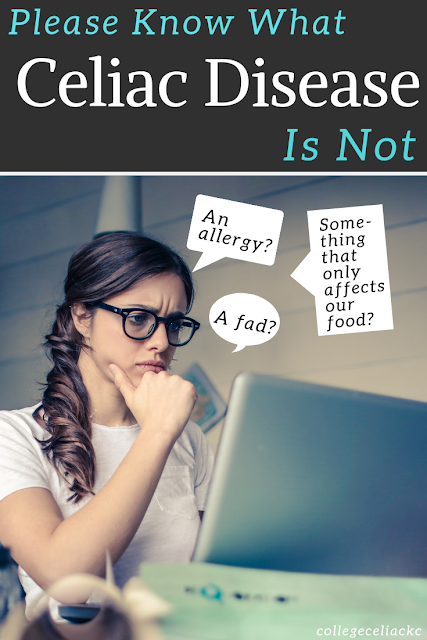
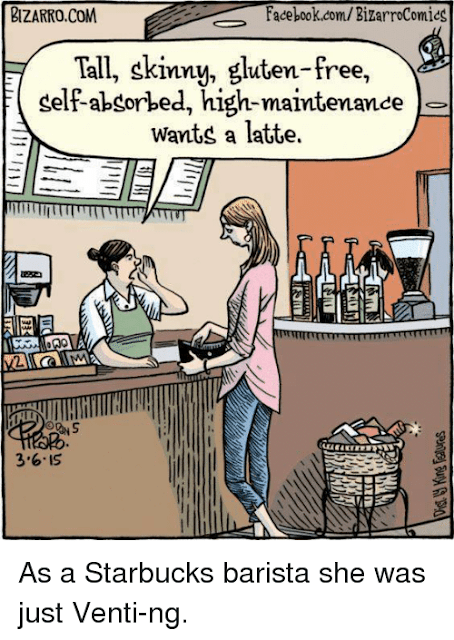
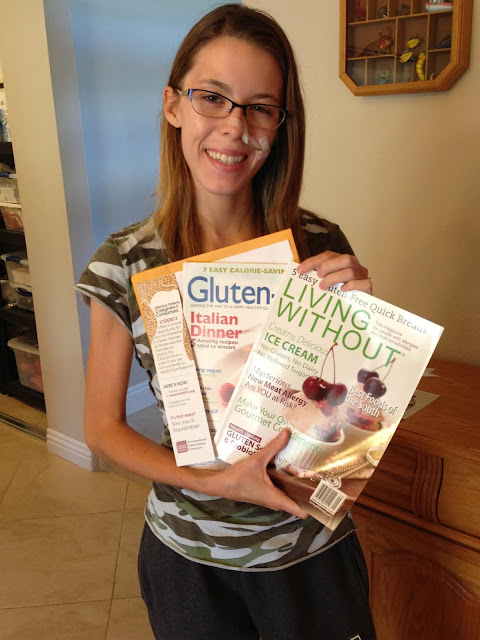
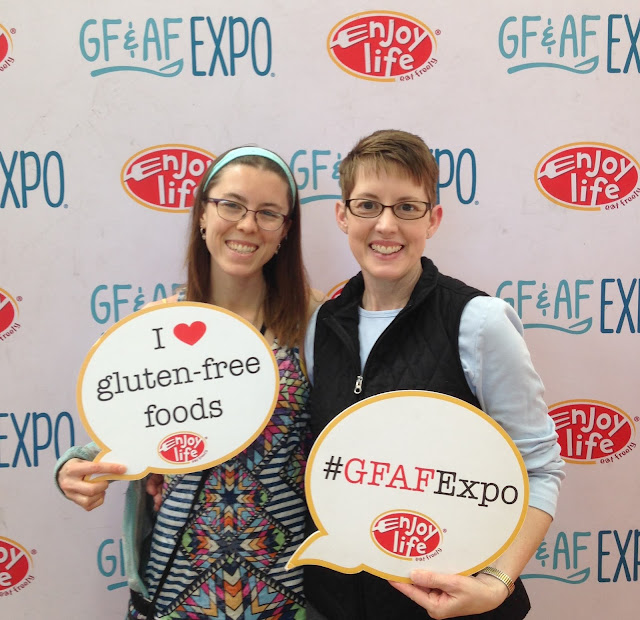
Comments
Post a Comment